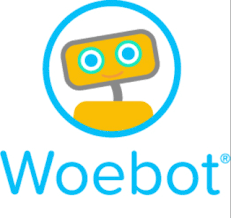Artificial intelligence (AI) has permeated nearly every aspect of modern life, from weather forecasting to disease diagnosis, and now, it’s making significant strides in mental health support. AI-driven mental health chatbots are emerging as a valuable tool, providing therapy support around the clock, right at our fingertips. With a critical shortage of human therapists and an increasing number of individuals seeking help, these AI-powered tools aim to bridge the gap. However, like human therapists, not all chatbots are created equal; their effectiveness can vary widely. One notable success story in this field is Alison Darcy, who has effectively combined technology with therapy.
Alison Darcy, a research psychologist and entrepreneur, recognized the growing need for mental health care and the limitations of traditional therapy models. “We know the majority of people who need care are not getting it,” Darcy stated, emphasizing the need for innovative solutions. This realization led her to develop Woebot, an AI-driven mental health chatbot designed to provide support for issues such as depression, anxiety, addiction, and loneliness.
Woebot operates through a smartphone app, offering a “pocket therapist” that uses text-based interactions to help users manage their mental health. It employs cognitive behavioral therapy (CBT) techniques, a well-established method in psychology, to challenge dysfunctional thoughts and promote healthier thinking patterns. Darcy’s goal is to modernize psychotherapy and make it accessible outside traditional clinical settings.
The Mechanics of Woebot: AI Meets CBT
Woebot’s effectiveness lies in its sophisticated AI algorithms, which analyze and respond to user inputs in real-time. They have trained it on extensive datasets to recognize and address various mental health issues. The chatbot’s design allows it to respond to text, phrases, and even emojis, making it highly interactive and user-friendly. This capability is particularly valuable for users who may not have immediate access to human therapists, especially during late-night hours or moments of acute distress.
Since its launch in 2017, over 1.5 million people have used Woebot, demonstrating its widespread appeal and utility. Users can access Woebot through employer benefit plans or health professionals, ensuring that it reaches those in need. At Virtua Health, a nonprofit healthcare organization in New Jersey, patients can use Woebot free of charge, further expanding its reach.
Despite its benefits, AI in mental health care is not without challenges. One significant issue is the potential for AI chatbots to miss critical nuances or provide inappropriate advice. This was highlighted by the case of Tessa, a chatbot designed to help prevent eating disorders. When users pushed its limits, Tessa provided harmful advice, such as lowering calorie intake, which can be dangerous for individuals with eating disorders. This incident underscores the need for rigorous oversight and the development of AI systems with robust guardrails to prevent such occurrences.
The Future of AI in Mental Health Care
AI’s role in mental health care is evolving, and its potential to provide support is immense. However, it is crucial to develop these technologies thoughtfully and ensure they are used responsibly. As Darcy noted, “There are going to be missteps if we try and move too quickly. But we have an opportunity to develop these technologies more thoughtfully.”
The integration of AI into mental health care represents a significant advancement, offering a scalable solution to a pressing global issue. While AI chatbots like Woebot can provide valuable support, they are not a replacement for human therapists. The future of mental health care will likely involve a hybrid approach, combining the best of AI technology with human empathy and expertise to provide comprehensive support.
In conclusion, AI-powered mental health chatbots like Woebot offer a promising tool for addressing the growing demand for mental health care. By leveraging advanced AI algorithms and CBT techniques, these chatbots can provide timely and effective support, making mental health care more accessible than ever before. However, ongoing development and careful oversight are essential to ensure these tools are safe, effective, and reliable.
See also: Ask2Bid.Net Is Pioneering The Future Of Trading: An AI-Powered Revolution


















